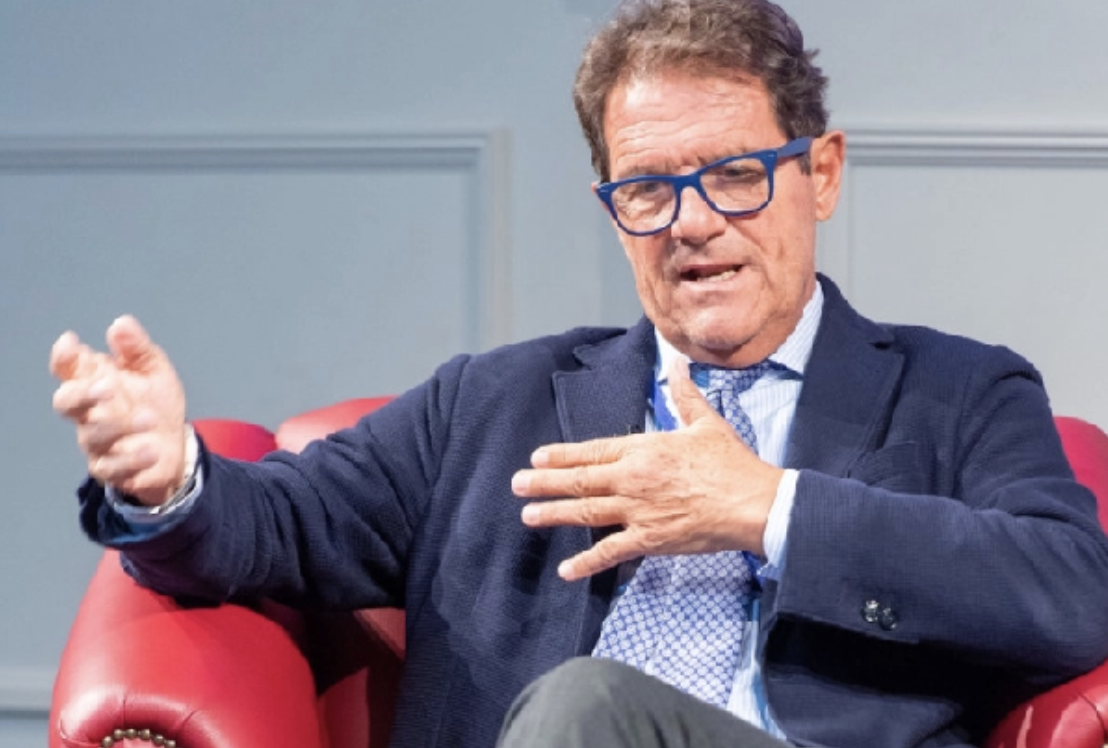By Paul Nicholson in Edinburgh
September 6 – Coaching legend Fabio Cappello has slammed the power that player agents have within the game, and how that power is used to manipulate players, managers and clubs.
Speaking at the Edinburgh Sports Conference, he said: “Agents have a lot of power to influence players and this is really bad. There is a certain agitation created by this situation, it is disturbing. Agents are part of the process but that can upset the whole club,” said Cappello.
Speaking to an audience of sports lawyers, Capello, who never had an agent either as a player or manager, questioned whether agents were necessary and warned of the conflicts of interest so often present between agents, players and clubs.
Illustrating his point, he said he told former Roma forward Francesco Totti; “You are so good (a player) you don’t need an agent, you need a good lawyer.”
For Capello, whose son Pierfillippo is a lawyer and an agent, the issues of transparency and integrity are paramount. “I never want to think about the fact that I bought a player because my son is an agent,” he said.
“Agents make you choose players. (Jorge) Mendes is the best at this. He works with players, teams, managers, presidents and they all win,” he said. That might be great for Premier League Wolverhampton Wanderers – where Mendes has frequently been criticised for having too much influence – but is that control really healthy for the competitiveness of the football market? Does it not strike at the heart of one of the fundamental principles of equality within the game?
Agents will argue that they protect their players but with focus increasingly falling on agents who act for both clubs and players in lucrative transfer deals, the guidelines are blurring and even where there is clear regulation, the participants find loopholes or just ignore it.
For Capello the protection for the player – and in his case the manager – comes through the contract which will “give you the right to be strong” when issues arise.
An example for Capello was when he took the England job in 2008 he stipulated that the captain could not be imposed on him by the FA but would be his choice – in this case John Terry.
“Then John Terry had an alleged racist problem with the brother of Rio Ferdinand [Anton]. The FA phoned me: ‘We cannot have him as captain any longer, all the papers are pushing for this’. I said: ‘remember my contract, I can’t allow it’. It also meant we were saying he was guilty before any investigation ,” he said.
Capello ended up quitting the England team as he felt that being forced to change captain undermined his position in the dressing room. His contract gave him the protection to be able to do that.
The later part of Capello’s career saw him manage the Russian national team and Jiangsu Suning in the Chinese Super League which themselves brought different challenges and again emphasised the importance of a strong contract.
The Russian Football Union hired Capello to ensure the team qualified for the 2014 World Cup finals in Brazil, with a view to taking them on to their home World Cup in 2018. While they qualified for Brazil they failed to win a game. His next test was the Euro 2016 qualifying campaign.
“Things were very difficult,” he said. “We were playing Austria – we were second, they were first. We lost 1-0 [at home]. We were missing several players – we didn’t have the strongest squad at the time anyway. I was at the airport, they said: ‘come back’. When I did, it was: ‘you’re gone, you’re fired’. Getting money out of there is very difficult but they sorted something out.”
He may be blasé about it now, but it took more than four months of persistence and working without pay to get his payment from the RFU.
China presented a different issue, not least when it came to came to getting his money out of the country. The rigours of the contract and commitment of the club to that deal made sure he was eventually able to take the money out of China.
Asked what advice he would give to a manager when taking a new job, he said the “biggest difficulty was direct communications with those responsible for the club…As a coach you need to agree a plan and the objectives. You can’t just go and say that’s what you are doing.”
The problem with owners is that plans change, and so do managers.
Contact the writer of this story at moc.l1744980240labto1744980240ofdlr1744980240owedi1744980240sni@n1744980240osloh1744980240cin.l1744980240uap1744980240

